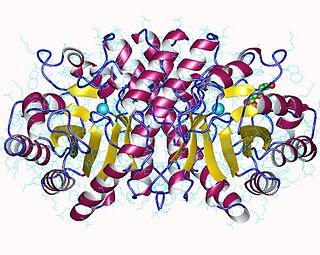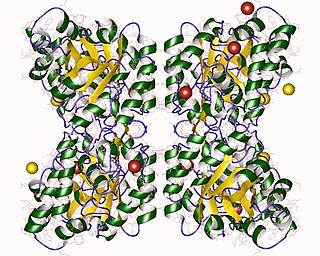| trans-feruloyl-CoA hydratase | |||||||||
|---|---|---|---|---|---|---|---|---|---|
| Identifiers | |||||||||
| EC no. | 4.2.1.101 | ||||||||
| CAS no. | 197462-62-7 | ||||||||
| Databases | |||||||||
| IntEnz | IntEnz view | ||||||||
| BRENDA | BRENDA entry | ||||||||
| ExPASy | NiceZyme view | ||||||||
| KEGG | KEGG entry | ||||||||
| MetaCyc | metabolic pathway | ||||||||
| PRIAM | profile | ||||||||
| PDB structures | RCSB PDB PDBe PDBsum | ||||||||
| Gene Ontology | AmiGO / QuickGO | ||||||||
| |||||||||
In enzymology, a trans-feruloyl-CoA hydratase (EC 4.2.1.101) is an enzyme that catalyzes the chemical reaction
- 4-hydroxy-3-methoxyphenyl-beta-hydroxypropanoyl-CoA trans-feruloyl-CoA + H2O
Hence, this enzyme has one substrate, 4-hydroxy-3-methoxyphenyl-beta-hydroxypropanoyl-CoA, and two products, trans-feruloyl-CoA and H2O.
This enzyme belongs to the family of lyases, specifically the hydro-lyases, which cleave carbon-oxygen bonds. The systematic name of this enzyme class is 4-hydroxy-3-methoxyphenyl-beta-hydroxypropanoyl-CoA hydro-lyase (trans-feruloyl-CoA-forming). This enzyme is also called trans-feruloyl-CoA hydro-lyase (incorrect).




